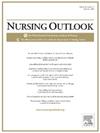探讨ChatGPT在妇女健康自我教育中的作用:一项比较回应与公共健康指导的描述性研究
IF 3.7
2区 医学
Q1 NURSING
引用次数: 0
摘要
人工智能和ChatGPT等大型语言模型越来越多地用于健康自我教育。然而,对内容准确性的关切仍然存在,特别是在妇女健康方面。目的通过比较ChatGPT对公共卫生指导的响应,探讨ChatGPT在支持妇女健康自我教育方面的潜在作用。方法在ChatGPT (GPT-3.5)中输入基于关键女性健康问题的用户生成提示,进行描述性研究。将反应与疾病控制和预防中心(CDC)的建议进行比较,以评估内容一致性。与CDC的资源相比,schatgpt提供了及时、可获取且总体准确的信息。回答的质量随提示方式的不同而不同,对话提示会产生更详细和个性化的答案。讨论chatgpt显示了作为妇女健康患者自我教育的补充工具的潜力。未来的创新,如提供者衍生的即时设计资源指南,可以进一步提高人工智能支持的卫生信息的可靠性和可及性。本文章由计算机程序翻译,如有差异,请以英文原文为准。
Exploring ChatGPT’s role in women's health self-education: A descriptive study comparing responses with public health guidance
Background
Artificial intelligence and large language models like ChatGPT are increasingly used for health self-education. However, concerns regarding content accuracy remain, particularly in women's health.
Purpose
This study explores ChatGPT’s potential role in supporting women's health self-education by comparing its generated responses to public health guidance.
Methods
A descriptive study was conducted by inputting user-generated prompts based on key women's health concerns into ChatGPT (GPT-3.5). Responses were compared with Centers for Disease Control and Prevention (CDC) recommendations to assess content alignment.
Findings
ChatGPT provided timely, accessible, and generally accurate information when compared towith CDC resources. The quality of responses varied with the prompt style, with conversational prompts yielding more detailed and personalized answers.
Discussion
ChatGPT demonstrates potential as a supplementary tool for patient self-education in women’s health. Future innovations, such as provider-derived prompt-engineered resource guides, could further enhance the reliability and accessibility of AI-supported health information.
求助全文
通过发布文献求助,成功后即可免费获取论文全文。
去求助
来源期刊

Nursing Outlook
医学-护理
CiteScore
6.20
自引率
7.00%
发文量
109
审稿时长
25 days
期刊介绍:
Nursing Outlook, a bimonthly journal, provides innovative ideas for nursing leaders through peer-reviewed articles and timely reports. Each issue examines current issues and trends in nursing practice, education, and research, offering progressive solutions to the challenges facing the profession. Nursing Outlook is the official journal of the American Academy of Nursing and the Council for the Advancement of Nursing Science and supports their mission to serve the public and the nursing profession by advancing health policy and practice through the generation, synthesis, and dissemination of nursing knowledge. The journal is included in MEDLINE, CINAHL and the Journal Citation Reports published by Clarivate Analytics.
 求助内容:
求助内容: 应助结果提醒方式:
应助结果提醒方式:


